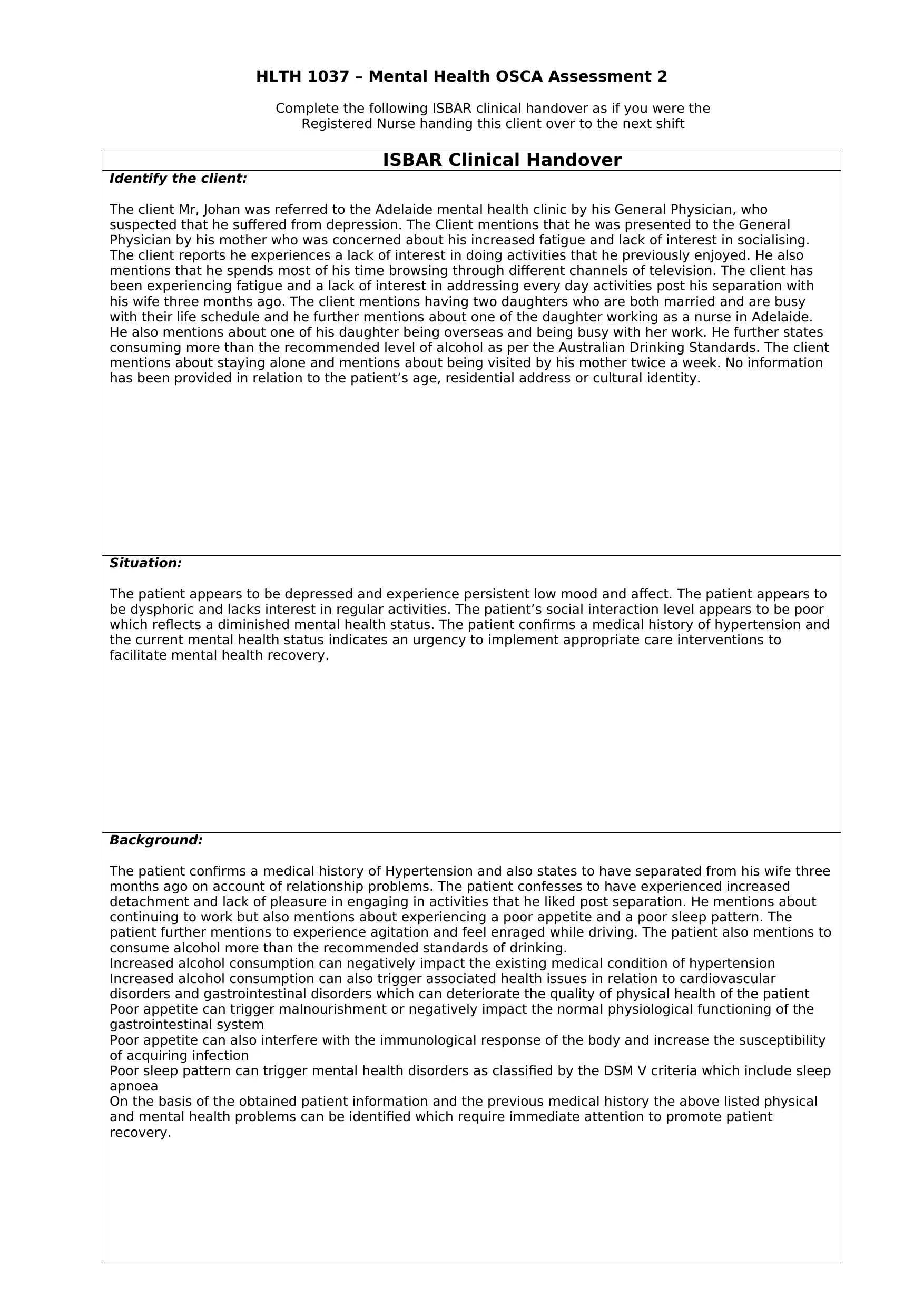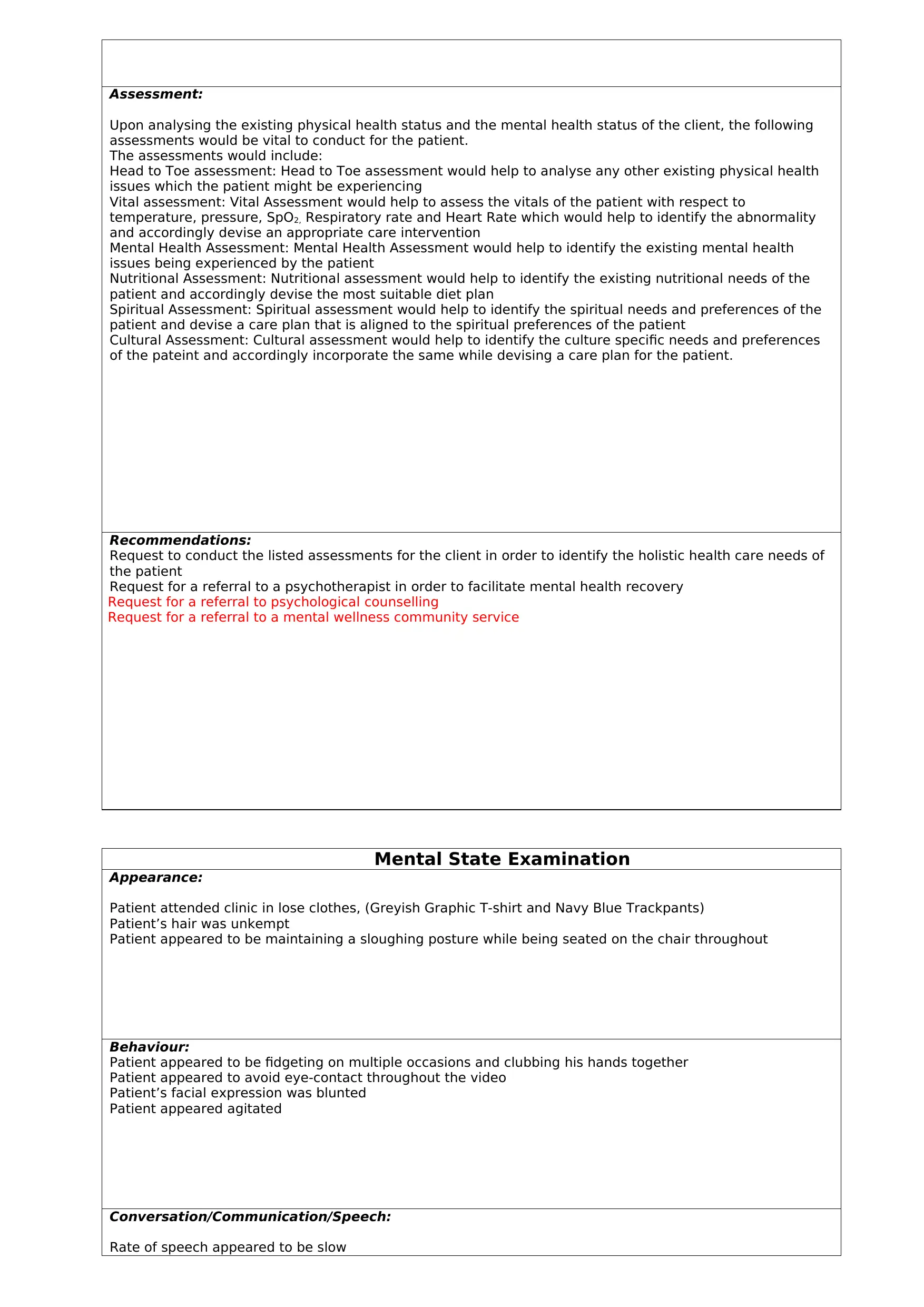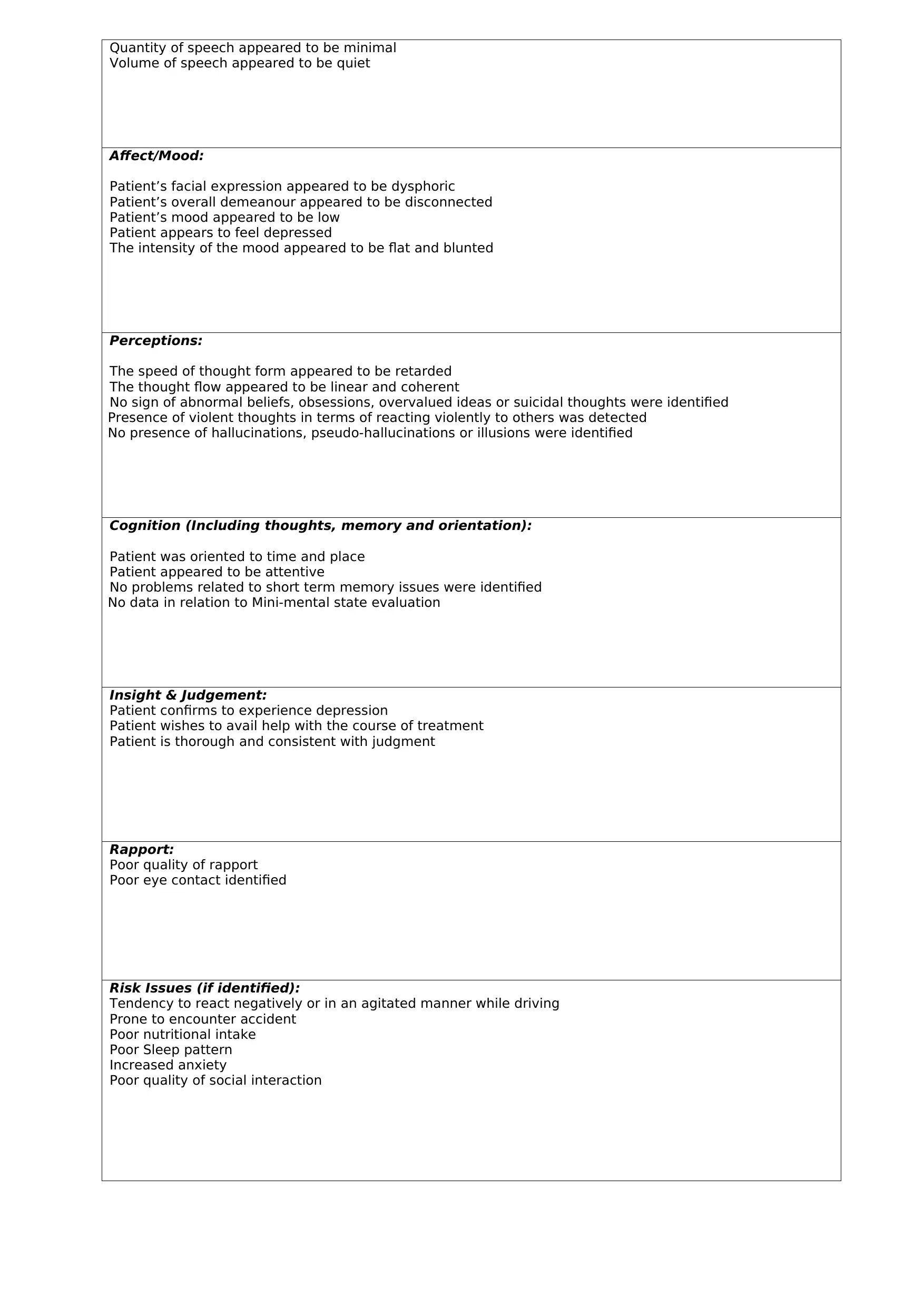Adelaide Mental Health Clinic: HLTH 1037 OSCA Assessment 2 Report
VerifiedAdded on 2022/11/22
|3
|1434
|92
Practical Assignment
AI Summary
This assignment presents a comprehensive ISBAR (Identify, Situation, Background, Assessment, Recommendation) clinical handover and a Mental State Examination (MSE) for a client referred to the Adelaide mental health clinic. The client, Mr. Johan, presents with symptoms of depression, including fatigue, lack of interest in activities, and excessive alcohol consumption following a recent separation. The ISBAR details the client's history, including hypertension and social isolation, and recommends various assessments such as head-to-toe, vital, mental health, nutritional, spiritual, and cultural assessments. The MSE analyzes the client's appearance, behavior, speech, affect, perceptions, cognition, and insight, revealing a dysphoric mood, slow speech, and tendencies towards agitation. Risk issues identified include potential for accidents while driving, poor nutritional intake, and social interaction challenges. The assessment underscores the need for immediate interventions to promote mental health recovery, including referrals to a psychotherapist, psychological counseling, and mental wellness community services. This assignment demonstrates a detailed understanding of clinical handover protocols and mental health assessment techniques, providing a thorough evaluation of the client's condition and appropriate recommendations for care.
1 out of 3










![[object Object]](/_next/static/media/star-bottom.7253800d.svg)